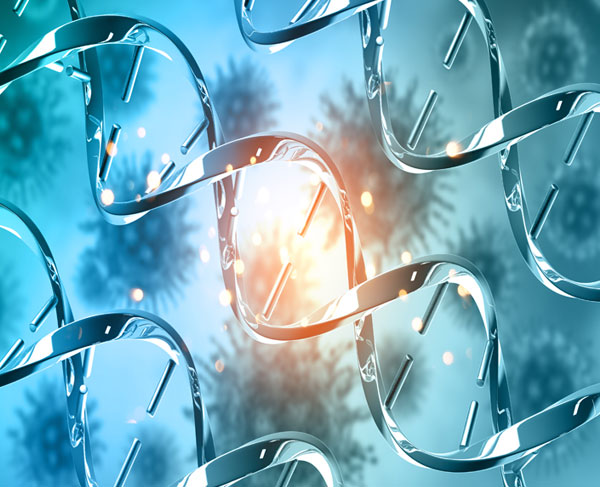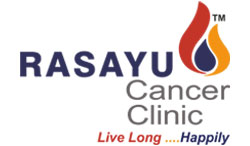Cancer Types
- Bladder Cancer
- Bone Cancer
- Breast Cancer
- Cervical Cancer
- Colorectal Cancer
- Endometrial Cancer
- Head & Neck Cancer
- Kidney Cancer
- Laryngeal Cancer
- Leukaemia
- Liver Cancer
- Lung Cancer
- Multiple Myeloma
- Nasopharyngeal Cancer
- Non-Hodgkin's Lymphoma
- Oesophagus Cancer
- Oral Cancer
- Ovarian Cancer
- Pancreatic Cancer
- Prostate Cancer
- Skin Cancer
- Stomach Cancer
- Testicular Cancer
- Thyroid Cancer
Opening Hours
- Monday - Saturday 10:00 am - 7.00 pm

Kidney Cancer
- Renal cell carcinoma is a cancer of kidneys which occurs when cancer cells start growing in the lining of kidney tubules.
- Excretion of waste products and formation of urine is a major function done by of kidneys in our body.
- It is ranked 15th in the overall prevalence among all cancer types and constitutes 0.22% of the total cancer patients annually as per Globocan 2018.
- The death rate of Kidney cancer is about 1.8% per year of the total cancer deaths.
- The 5-year survival rate stands at 75% while it can go as high as 93% if it is confined to the kidneys and 70% if it has spread to surrounding tissues and lymph nodes. If it has spread to distant part of the body it climbs down to 12%.
- Kidney cancer is more common in males between the ages of 50 and 70 (male: female ratio 2:1) but can be diagnosed in any gender.
- The incidence of Kidney cancer has increased by 38% in last two decades.
- At the time of diagnosis, about 20% patients have metastatic carcinoma and 25% have totally advanced disease.
- Types of Kidney Cancer :
– Renal Cell Carcinoma – is the most common type of adult kidney cancer, making up about 85% of kidney cancer
patients It normally occurs at the proximal renal tubules.– Urothelial Carcinoma – is also called transitional cell carcinoma. It accounts for 5% to 10% of the kidney cancers
diagnosed in adults and affects the area of the kidney where urine collects before flowing in to the bladder,
called the renal pelvis.– Sarcoma –of the kidney is rare. Which affects the soft tissue of the kidney and the connective tissue surrounding
the kidney.– Wilms Tumor – is more common in children. Wilms tumors make up about 1% of kidney cancers.
– Lymphoma – is enlargement of the lymph nodes and can enlarge both kidneys.
Causes
- Family history of Kidney Cancer.
- Dialysis treatment.
- Hypertension.
- Smoking cigarettes.
- Polycystic kidney disease.
- Von Hippel-Lindau syndrome (VHL) – associated with chromosomal mutations and at high risk in their 30s for development of RCC.
- Acquired renal cystic disease from uraemia.
- Chronic abuse of some medications such as non-steroidal anti-inflammatory drugs used to treat arthritis and medications for fever and pain relief such as acetaminophen.
- Horseshoe kidneys.
Carcinogenic agents with sufficient evidence in humans
- Tobacco smoking.
- Trichloroethylene.
- X-radiation, gamma-radiation.
- Aristolochic acid.
- Plants containing Phenacetin.
- Analgesic mixtures containing Phenacetin.
Carcinogenic agents with sufficient evidence in humans
- Arsenic and inorganic arsenic compounds.
- Cadmium and cadmium compounds.
- Perfluorooctanoic acid.
- Aristolochic acid.
- Printing processes.
- Welding fumes, including Iodine 131.
- Overuse of certain medications. Painkillers as stated above and diuretics and analgesic pain tablets like aspirin, acetaminophen, and ibuprofen, have also been linked to kidney cancer.
- Long-term dialysis. People who have been on dialysis for a long time may develop cancerous cysts in their kidneys.
- Family history.
Signs and Symptoms
Kidney Cancer is detected as an asymptomatic incidental lesion in at least 20% cases. Clinical presentation of Kidney cancer is variable. At an early stage, it may be symptom free. Following symptoms may occur with progression of disease.
- Hematuria – blood in the urine.
- Loin pain with or without mass.
- Lump in the abdomen.
- Fever of unknown origin.
- Malaise.
- Haematological disorders – Anaemia, Thrombocytopenia.
- Unexplained weight loss.
- Loss of appetite.
- Fatigue.
- Vision problems.
- Persistent pain in the side.
- Erythrocytosis.
- Hypercalcemia.
- Hypertension – incidence up to 40%.
- Hepatic dysfunction – (Uncommon)
- Raised alkaline phosphatase.
- Hypergammaglobulinaemia.
- Raised bilirubin.
- Hypoalbubiminaemia.
- Prolonged prothrombin time.
- Cushing’s syndrome-rare.
- Protein Enteropathy.
- Galacorrhoea.
- Hypoglycemia etc.
Investigations
- Physical examination and history.
- PET scan/MRI/CT scan – MRI/ CT Scan test assess kidney tumor growth and its extension in the body. These tests have more accuracy than ultrasonography. PET Scan is done to check the spread of disease.
- Biopsy – It is done to get a small piece of kidney tissue to rule out or confirm the presence of cancer.
- Blood investigation reports – Tests are done to monitor anaemia and raised ESR.
- Urine examination – tests are used to detect blood in the urine and to analyse cell in the urine looking for evidence of cancer.
- Echocardiography – It may be needed if there is evidence of atrial involvement.
- Venography – to assess thrombus.
Treatment
- To plan personalised treatment for each individual patient as every individual is different even if they have the same type of cancer.
- To improve health related quality of life (QOL) in all types and stages of cancer patients.
- To plan for partial or total regression of tumour depending on the nature of tumors.
- To increase overall survival (OS) of patients.
- To increase disease free survival (DFS) where complete resection of tumour is achieved.
- To provide a treatment option to patients who are refractory to conventional treatments like chemotherapy / radiotherapy / immunotherapy etc.
- To reduce the rate of growth of the tumor in recurrent and advanced staged cases.
- To increase progression free survival in advance cases.
- To reduce impact of symptoms related to progression of disease.
- To improve confidence of patients.
- To provide palliative support in end-of- life cancer cases.
- To add happiness and extension of life to cancer patients.
- To compliment other therapies like chemotherapy, radiotherapy in a synergistic way.
- To reduce severity or adverse effects of other conventional treatment. This reduces incidence and frequency of hospitalization.
- It is pertinent to note that Rasayu Cancer Clinic does not claim or blame anything while communicating any aspect to cancer patients.
- Rasayu Cancer Clinic focuses on Ayurveda fundamental based therapies.
- Rasayu Cancer Clinic believes in continuous improvement in service and science.
- Rasayu Cancer Clinic always advocates patient centric approach which leads to long and happy life of cancer patients.
- Every patient has a right to choose the therapy.
- Rasayu Cancer Clinic never imposes Rasayana therapy on patients but helps them to take the right decision, hence making patients/ relatives well aware about the disease and possible outcomes along with its risk benefit and cost benefit ratios.
- Rasayu Cancer Clinic is well connected with global updates in cancer care and therapies, through advisors and collaborations with national and international institutes.
Surgery
- The mainstay of treatment of RCC is radical treatment with excision of kidney. Depending on how far the disease has spread, more extensive surgery may be needed to remove surrounding tissue, lymph nodes and the adrenal gland.
- Surgery can include different types of procedures.
- Partial Nephrectomy – Part of the kidney or the entire kidney may be removed.
- Radical Neprectomy – complete removal of kidney.
- Nephron Sparing Surgery – Occasionally patients develop bilateral renal cell cancer or may have had previous nephrectomy damage to the other kidney. In these circumstances this surgery may be considered.
Chemotherapy
- Chemotherapy is the use of drugs to destroy cancer cells, usually by keeping the cancer cells from growing, dividing, and making more cells. Although chemotherapy is useful for treating many types of cancer, most cases of kidney cancer are resistant to chemotherapy.
- The side effects of chemotherapy depend on the individual and the dose used, but can include fatigue, risk of infection, nausea and vomiting, hair loss, loss of appetite, and diarrhoea. These side effects usually go away after treatment is finished.
- Side effects of Chemotherapy – Click Here
- Adverse drug reactions (ADRs) of Chemotherapy – Click Here
Radiation Therapy
- Radiation therapy is the use of high-energy x-rays or other particles to destroy cancer cells.
- Radiation therapy is ineffective as a primary treatment for kidney cancer.
- What are the side effects of radiation therapy? – Click Here
Immunotherapy
- Immunotherapy is designed to boost the body’s natural defences to fight cancer. It uses drugs made either by the body or in a laboratory to improve immune system function.
- The efficacy of this treatment is still not clear as per the National Library of Medicine, since there is a need for improved biomarkers.
- Cost of the treatment is high and many times does not suit the cost benefit ratio.
- Side Effects – Click Here
- Risk and benefits of Immunotherapy – Click Here
- Side Effects of Immunotherapy – Click Here
Targeted Therapy
- Targeted therapy is a treatment that targets the cancer’s specific genes, proteins, or the tissue environment that contributes to cancer growth and survival.
- This type of treatment blocks the growth and spread of cancer cells while limiting damage to healthy cells.
- Side Effects from Targeted Agents in Renal Cell Cancer – Click Here
Rasayu Cancer Clinic Rasayan Treatment Protocol – To know more please click here
Rasayu Therapy is recommended for those :
- Who voluntarily opted for this treatment as their first choice.
- Who are disenchanted with the past treatments.
- Who do not see any other options of treatments.
- Who are looking for personalized treatment plan.
- Who desire a convenient home-based oral therapy which is easy to consume.
- Who are susceptible to acquire hospital borne infections/ complications, hence not willing to be hospitalised.
- Who are looking for favourable risk benefit ratio.
- Who desire to improve Quality Of Life benchmarks based on global standards and monitored regularly.
- Who are involved in decision making for choice of treatment.
- Who are willing to be involved in monitoring the efficacy of Rasayana Therapy.
- Who believe in the transparency of the process by conducting regular investigations by biochemical parameters/ hi tech imaging techniques like PET scan etc.
- Who are equally sensitive to the patient, the care givers and the family.
- Which can be taken with other treatments including Chemotherapy / Radiotherapy.
Disclaimer : This Website contains certain links such as You Tube links, research paper links / website links / audio visuals / internet information already available in public domain. The information contained in the audio visuals is meant for use by qualified Medical Professionals. The content of the links etc has been made available for informational and educational purposes only. Rasayu Cancer Clinic and its associates do not make any warranties with respect to the accuracy, applicability, fitness, or the completeness of the content of such links etc. The information contained in such links represents the views and opinions of the original creator of such links and are not views endorsed by the Rasayu fraternity.



